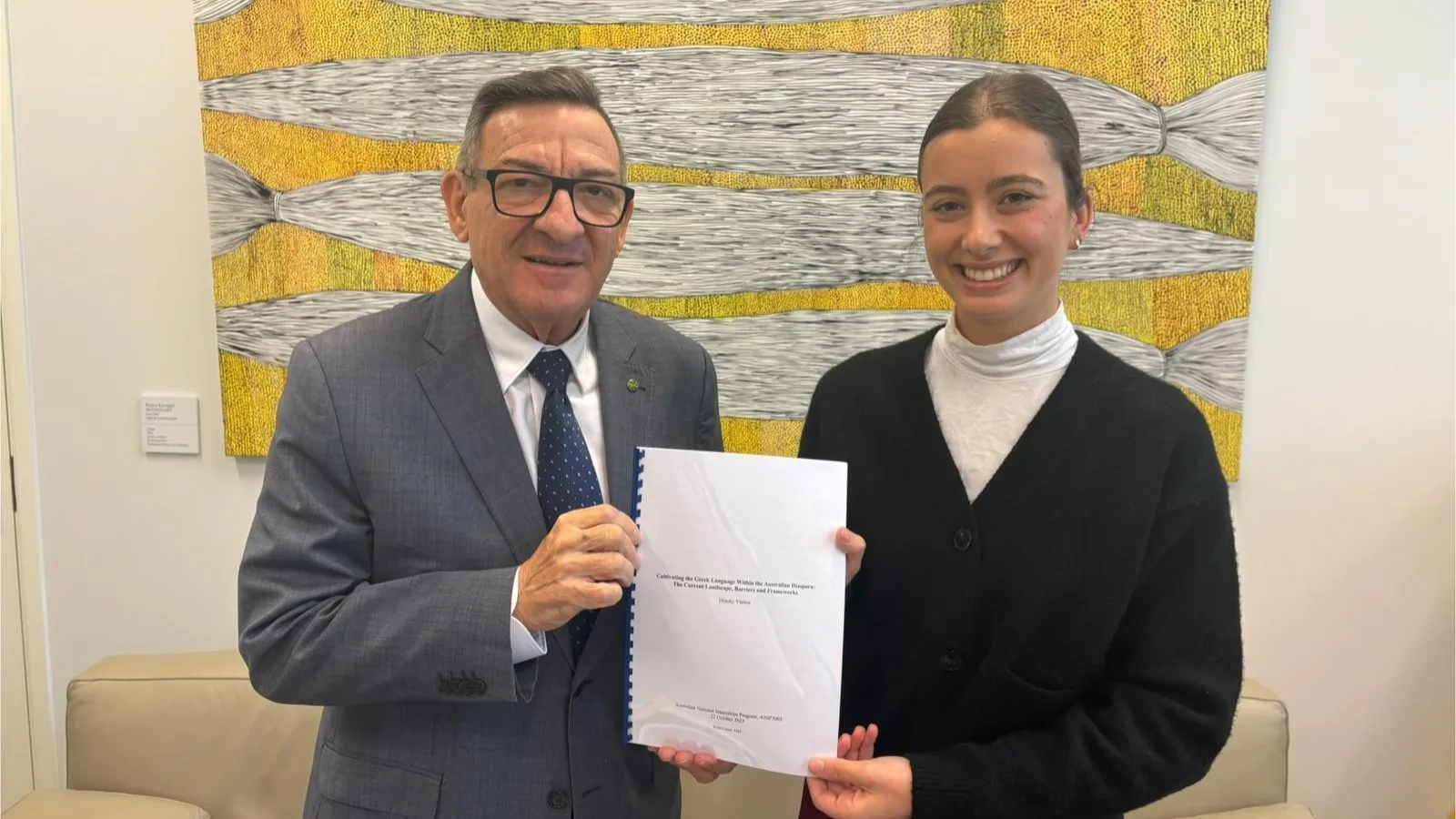Steve Georganas MP, Federal Member for Adelaide, has commissioned a landmark report on the preservation of the Greek language across generations in Australia and was tabled in the Federal Parliament on Tuesday, 4 November.
The report was undertaken by Dimity Vlahos who is completing her internship with Mr Georganas. Ms Vlahos is part of the Australian National Internship Program from the Australian National University (ANU).
“Cultivating the Greek language within the Australian diaspora looked at the landscape, the barriers that exist and the frameworks of the Greek language in Australia,” Mr Georganas said.
The report not only looked at the Greek language in Australia but also how it faired compared to other Greek diasporas, such as the USA and Canada. The report showed evidence that the maintenance of the Greek language in Australia faired much better than our counterparts.
“This is promising news and very positive for the Greek language in Australia, it shows that the hard work and effort from Greek communities, churches, Community Schools and educators is working,” Mr Georganas said.
This release coincides with UNESCO’s recent ratification of February 9 as World Greek Language Day, a global recognition of the Greek language’s enduring legacy and its foundational role in shaping human civilisation.
Greek migration has played a foundational role in forming modern Australia, with the Greek language serving as a key threat connecting generations of Greek Australians. However, recent studies show a concerning shift from Greek to English, particularly among young generations. This shift manifests in hybrid forms such as “GrEnglish” or “Greeklish”, where English words are interwoven into Greek speech.
“Community languages like Greek are more than just words. They’re about belonging, identity, and intergenerational connection,” said Mr Georganas, a second generation Greek Australian.
“Preserving multilingualism strengthens social cohesion and deepens Australia’s understanding and approach to multiculturalism.”
The report examines generational differences in language use, noting that while first generation migrants often maintain fluency, second and third generations may lack emotional attachment to the language.
This phenomenon, known as the “3-G Problem,” refers to the decline of minority languages within three generations. Remarkably, Greek defies this trend, with a 21% retention rate among third-generation Greek Australians.
Community centres, particularly Greek Orthodox churches, play a vital role in sustaining language and culture. These institutions foster belonging and support language schools, many of which are non-profit and community-led.
In South Australia alone, over 40,000 people claim Greek ancestry, and the state offers a wide range of language learning options.
“Protecting the Greek language is essential to maintaining cultural identity and ensuring that future generations remain connected to their heritage,” Ms Vlahos said.
A download of the report can found here.
